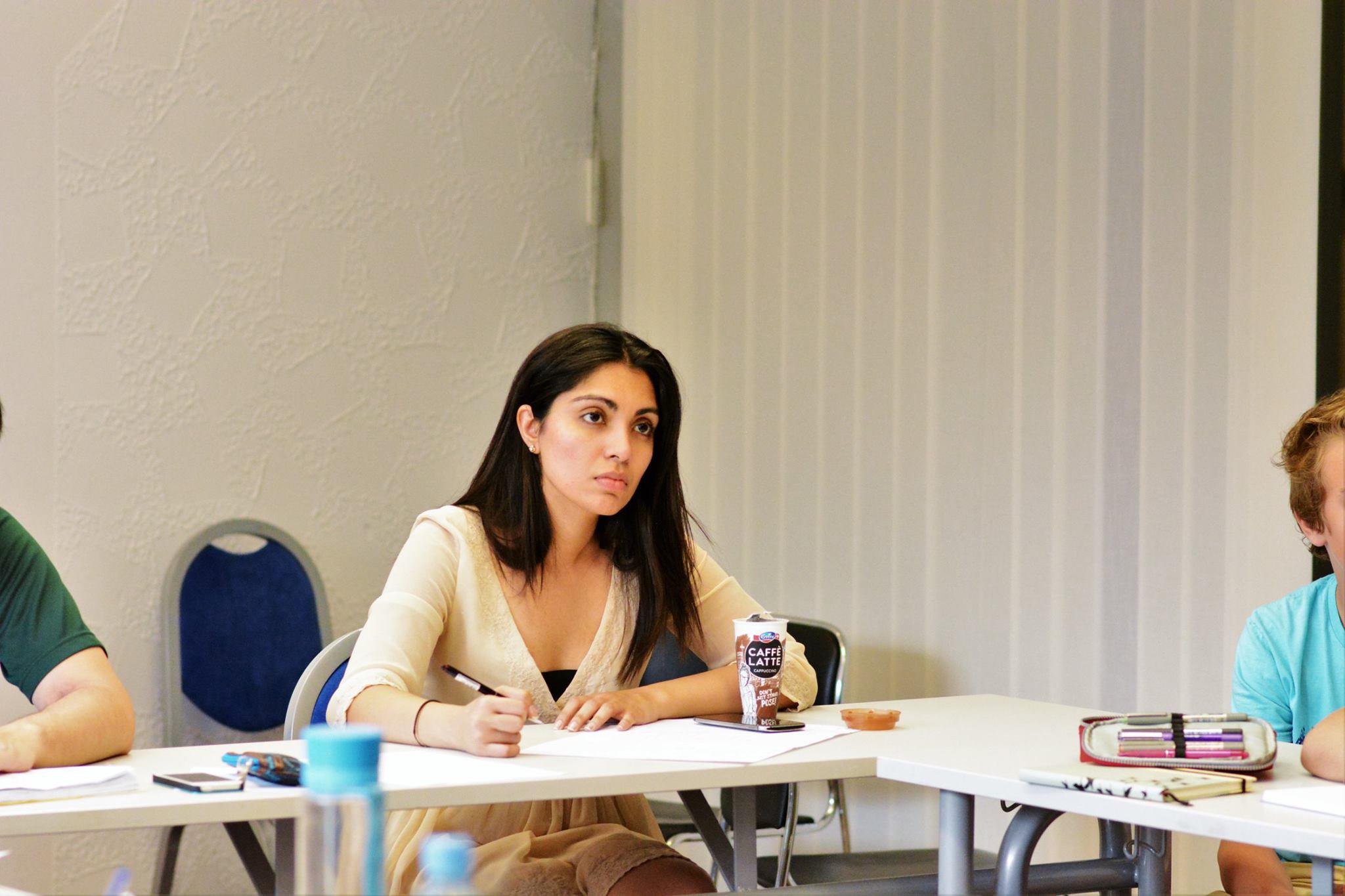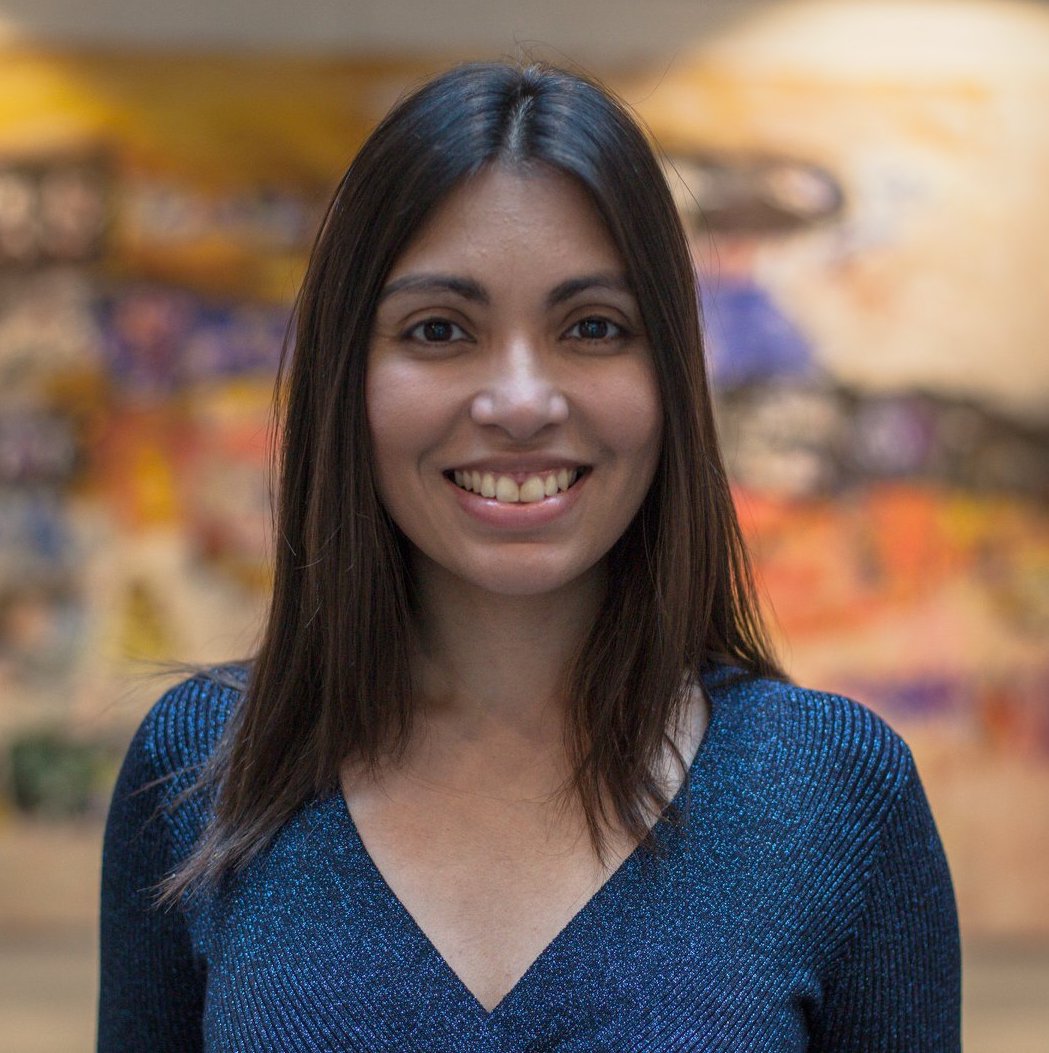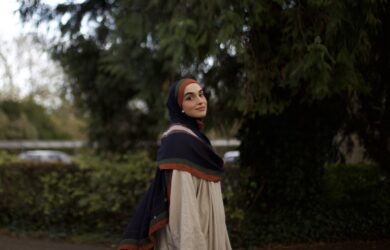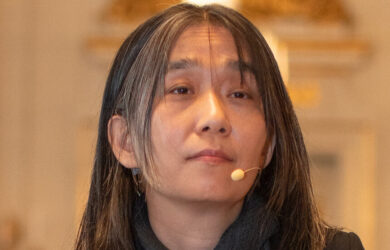
Sharmila Parmanand's research builds on her policy work on countering trafficking in human beings.
I feel that the policymaking process may exclude some of the most vulnerable groups, especially sex workers.
Sharmila Parmanand
What makes for an effective policy to counter trafficking in human beings? Sharmila Parmanand’s research will examine the current anti-trafficking ecosystem. It’s an area she knows well having worked at the Philippines’ leading anti-trafficking organisation as Head of Policy for several years.
She is particularly interested in the policy-making process, but also the knowledge claims made about victims and women in vulnerable employment situations and how these claims are negotiated and produced, the relationships among international funders, the state, and civil society actors, and the effects on women of measures such as raids and rescue operations and rehabilitation.
A key focus will be on unintended consequences of policies in the Philippines. “I feel that the policymaking process may exclude some of the most vulnerable groups, especially sex workers,” she says. “According to one strand of law sex workers are criminals while anti-trafficking lends itself to the interpretation that they are victims. They fall between different laws, but in both cases they are not included in discussions and there is no systematic and robust monitoring of what happens to people after they have been subjected to rehabilitation in shelters run by state agencies and nonprofit organisations. In a Catholic country, many arguments are moral ones rather than evidence-based ones.”
Sharmila [2016] says alternatives to sex work tend to be very low paid work, such as domestic service. It is possible to increase the $100 a month minimum wage for domestic service in the Philippines by working abroad, but even then minimum pay is only around $400 a month and they would have to be separated from their children. There are also many reports of abuse of foreign domestic workers. She says the women she spoke to look at the alternatives and many question whether they are better for them than the sex industry. She states: “Anti-trafficking measures need to better account for this demographic.”
Sharmila will do her research alongside her ongoing voluntary work as an international debate coach. She has worked in 30 nationss, including Palestine, and has a special interest in working with young women.
Political debate
Sharmila became interested in policy issues from an early age. She remembers being six or seven and her father bringing home a newspaper every day for her to read. Born in Zamboanga in the southern Philippines, she lived there until she went to college in Manila on a scholarship at the age of 16. Her father runs a general store and her mother is a housewife.
They placed a big emphasis on education. Sharmila attended a private primary and secondary school, funded in most part by scholarships. She initially thought she would study business when she won a scholarship to study at the top private college in the country in Manila. It had a strong record in the liberal arts and after the first two years she chose to specialise in politics.
Sharmila joined the debate team and took to it straight away. “It offered a safe space to talk about controversial and provocative things. Growing up in a small town it can be difficult to challenge established norms. In the debate team I could explore subversive ideas without fear of reprisal,” she says.
At university, Sharmila joined the Ateneo de Manila Debating Society, then one of the top 10 debate societies in the world, and enjoyed a fair amount of international competitive success Sharmila helped smaller schools start their own debate teams and coached them as part of a debate education programme and spent a significant amount of time after university engaging in international debate coaching
Gender and development
In 2011, she won an Australian leadership award to fund a master’s at the University of Melbourne in gender and development. “Given the social and political challenges in the Philippines I wanted to do development studies,” she says. “It seemed a natural progression from politics. I was very interested in women’s issues and gender equality. I could see a need for it in my country.”
Her master’s course lasted two years during which time she did fieldwork in the Philippines on microcredit and female borrowers for her dissertation and presented at academic conferences. “Microcredit was a big fad in developing countries. The idea was to give people access to credit so they could better themselves and then pay back the money. There was an emphasis on giving to women. The goals were to develop entrepreneurs and promote gender equality. My research questioned assumptions behind this and evaluated whether these goals corresponded to the lived reality of women on the ground,” says Sharmila.
She found that while women were happy to have access to credit, but that they were not using it to assert their collective rights. “They were using it to realise traditional obligations, spending more on the family and on being ‘a good mother’,” she adds. Partly this was to avoid seeming a threat to men. “There was not sufficient training in entrepreneurship and no basic social safety net for women,” she says.
When she finished her master’s, she returned to the Philippines and worked for Devex, a media platform for the global development community where she worked as a Development Analyst and Consultant, before moving to the leading anti-trafficking nonprofit, the Visayan Forum Foundation as Policy Director.
She had worked as a consultant to the organisation before, but the move to Policy Director at such a young age was a significant step up for her. Her role involved advising government officials and policymakers on trafficking trends and acting as a link between people on the ground and officials. The Foundation does research on all aspects of trafficking from trafficking of men in the fishing industry to sex trafficking. It also gets involved in rescue operations, supports victims and works with the police and other organisations and officials on the ground. It can be dangerous work, she says, and was very different to what she was doing in academia.
Multi-tasking
Soon after Sharmila started the job in early 2014 one of her debate mentors encouraged her to take a one-year debate coaching position at the University of Vermont. The Foundation said that, given that many Filipino victims were trafficked to the US, she could continue her work advising the government and sharing information from the demand side. So Sharmila spent the year doing two jobs in different time zones.
She returned to the Philippines in 2015 and to working full time for the Foundation, and felt the need to pursue research on the impact of anti-trafficking interventions under rigorous academic supervision. The seeds of her PhD dissertation were sown.
She applied to the University of Cambridge to do her PhD due to the strength of its Gender Studies programme. Sharmila hopes a PhD from Cambridge will help her to make the case for inclusion of sex workers in the policy-making process in the Philippines in view of its existing challenging policy environment.
Meanwhile she is continuing her debate mentoring while in the UK and has mentoring sessions lined up in Finland, Slovenia, Slovakia and Greece and will be running tournaments in the UK.

Sharmila Parmanand
- Alumni
- Philippines
- 2016 PhD Multi-disciplin Gender Studies
- Homerton College
My research projects interrogate how development and state interventions targeted at women in the global south reflect and shape their lived realities, with a focus on gender and international development, the politics of knowledge production, and feminist entanglements with the state on issues of human rights and women’s precarious labour.
Previous Education
University of Melbourne
Ateneo de Manila University












